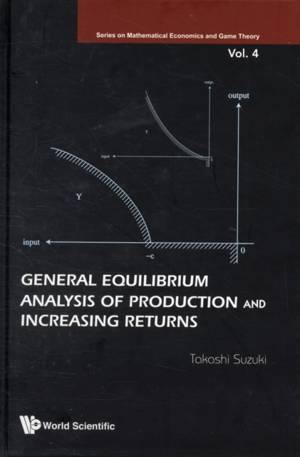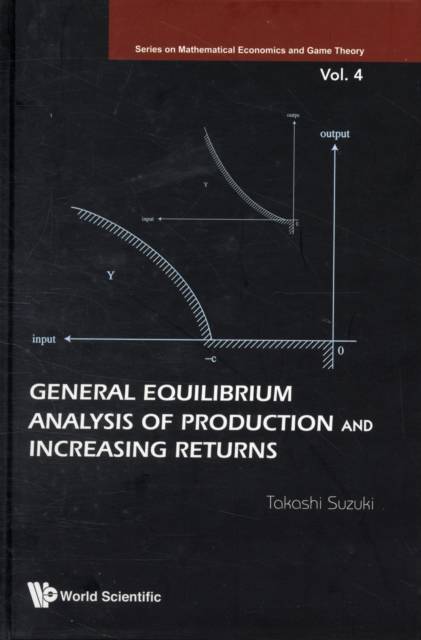
- Retrait gratuit dans votre magasin Club
- 7.000.000 titres dans notre catalogue
- Payer en toute sécurité
- Toujours un magasin près de chez vous
- Retrait gratuit dans votre magasin Club
- 7.000.0000 titres dans notre catalogue
- Payer en toute sécurité
- Toujours un magasin près de chez vous
General Equilibrium Analysis of Production and Increasing Returns
Takashi Suzuki
189,45 €
+ 378 points
Description
The scope of the general equilibrium (GE) theory has so far been limited to the Walrasian tradition. Indeed, the theories of competitive equilibria and the core are nothing but the modern mathematical analysis of the economic ideas due to Walras, Edgeworth and Pareto. Consequently, recent books in this field are inclined to be heavily technical and mathematical.On the other hand, the modern GE theory has not completed the study of increasing returns and monopolistic competition, which belong to the alternative important stream of economic thought, namely the Marshallian tradition. This book aims to fill this gap, by proving the existence of a competitive equilibrium with increasing returns coming from externalities in a dynamic economy and a monopolistically competitive equilibrium with the technologies exhibiting increasing returns coming from a large set-up cost. Also intended as a basic graduate textbook on GE theory, it contains all the basic results and mathematical techniques in this field, such as measure theory, manifold theory and Banach space theory.A unique feature of the book compared to classical monographs on GE is its emphasis on the historical nature of the subject, and not only the mathematical nature. Students are expected to learn that those mathematically formidable techniques are indeed necessary for tackling many economic problems which have been significant not only in the mathematical or technical context, but also in the historical and traditional context.
Spécifications
Parties prenantes
- Auteur(s) :
- Editeur:
Contenu
- Nombre de pages :
- 284
- Langue:
- Anglais
- Collection :
- Tome:
- n° 4
Caractéristiques
- EAN:
- 9789812833310
- Date de parution :
- 01-06-09
- Format:
- Livre relié
- Format numérique:
- Genaaid
- Dimensions :
- 168 mm x 246 mm
- Poids :
- 657 g

Les avis
Nous publions uniquement les avis qui respectent les conditions requises. Consultez nos conditions pour les avis.






